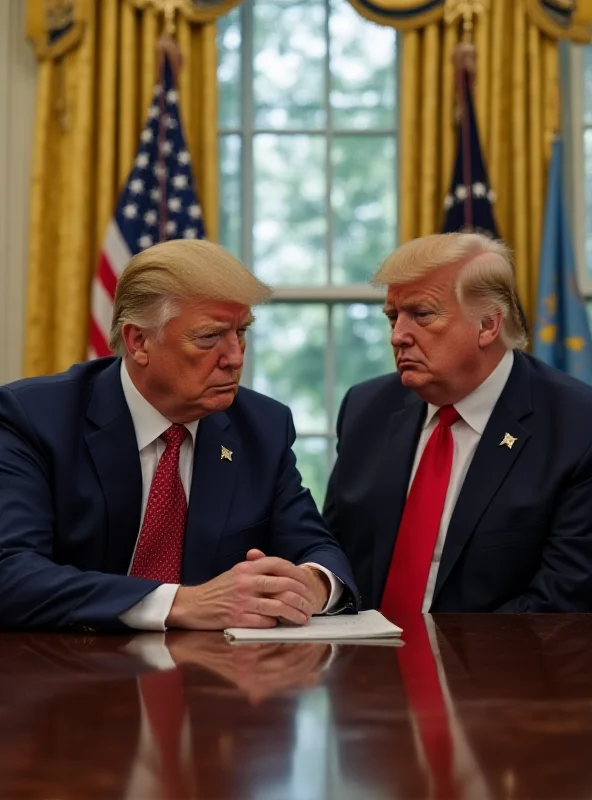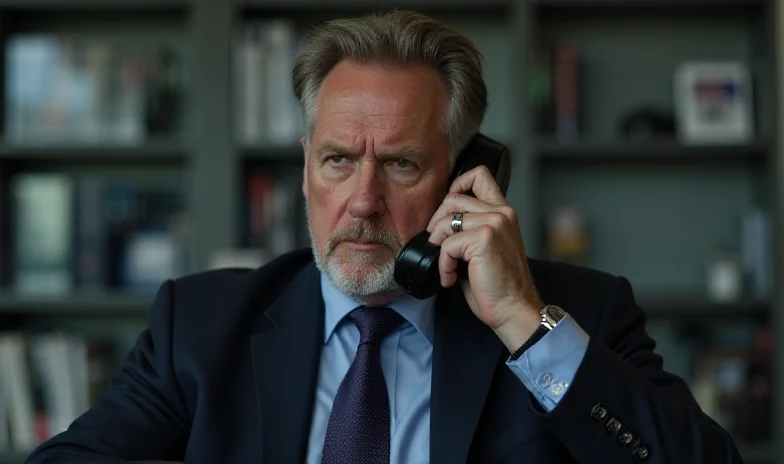In a week of high political drama, Labour leader Keir Starmer has found himself playing peacemaker after a contentious meeting between former US President Donald Trump and Ukrainian President Volodymyr Zelenskyy at the White House. The meeting reportedly devolved into a heated argument, prompting Starmer to engage in urgent phone calls with both leaders in an attempt to de-escalate the situation.

The Trump-Zelenskyy Fallout
Sources indicate that the Oval Office meeting between Trump and Zelenskyy became a shouting match over U.S. support for Ukraine. Trump reportedly told Zelenskyy, "You're not acting at all thankful" and warned him, "You don't have the cards." The Ukrainian President subsequently left the White House early.
The tense exchange underscores the complexities of international relations and the delicate balance of power. Trump, known for his disruptive approach to global politics, continues to be a force to be reckoned with on the world stage. As one article noted, President Trump continues to "play global disruptor while the world does its best to engage with him."
This incident throws into sharp relief the challenges facing Ukraine as it navigates the ongoing conflict and seeks international support. The fallout from the meeting clearly necessitated swift action, prompting Starmer's intervention.
Minister Resigns Over Aid Cuts
Adding to the political turmoil, a UK minister, identified as Dodds, has resigned over cuts to overseas aid. She stated the cuts would "deeply harm" the UK's reputation on the global stage. Dodds delayed her resignation until after Starmer's meeting with Trump, "saying he had needed a united cabinet."

This resignation highlights the internal pressures facing the UK government as it grapples with difficult decisions regarding foreign policy and international commitments. The minister's concerns about the UK's reputation underscore the importance of maintaining a strong and reliable presence on the world stage.
Starmer's Role as Intermediary
Keir Starmer's decision to intervene following the Trump-Zelenskyy clash positions him as a key player in international diplomacy. His phone calls with both leaders suggest an effort to mediate and find common ground amid rising tensions.

It remains to be seen what impact Starmer's intervention will have on the relationship between Trump and Zelenskyy. However, his actions demonstrate a commitment to addressing global challenges and fostering constructive dialogue in a time of increasing uncertainty.
The situation is clearly delicate, and requires careful handling to avoid further escalation.
The combination of the Trump-Zelenskyy clash and the minister's resignation paints a picture of a complex and rapidly evolving political landscape. All eyes will be on Starmer as he attempts to navigate these turbulent waters and assert his leadership on the international stage.
